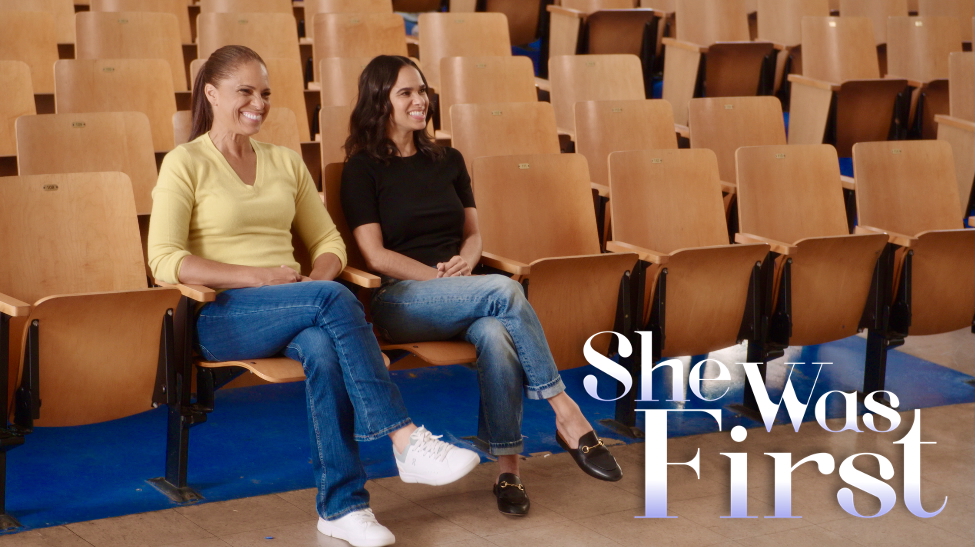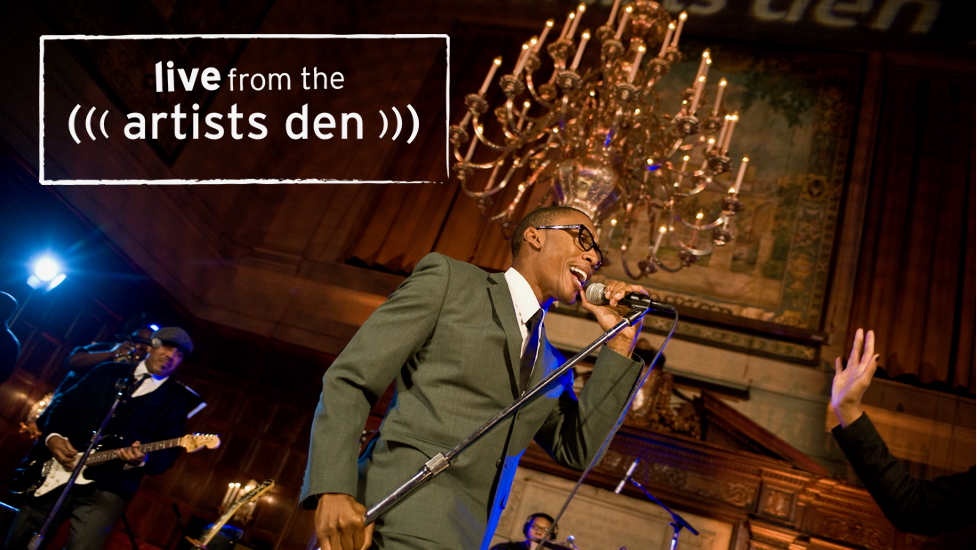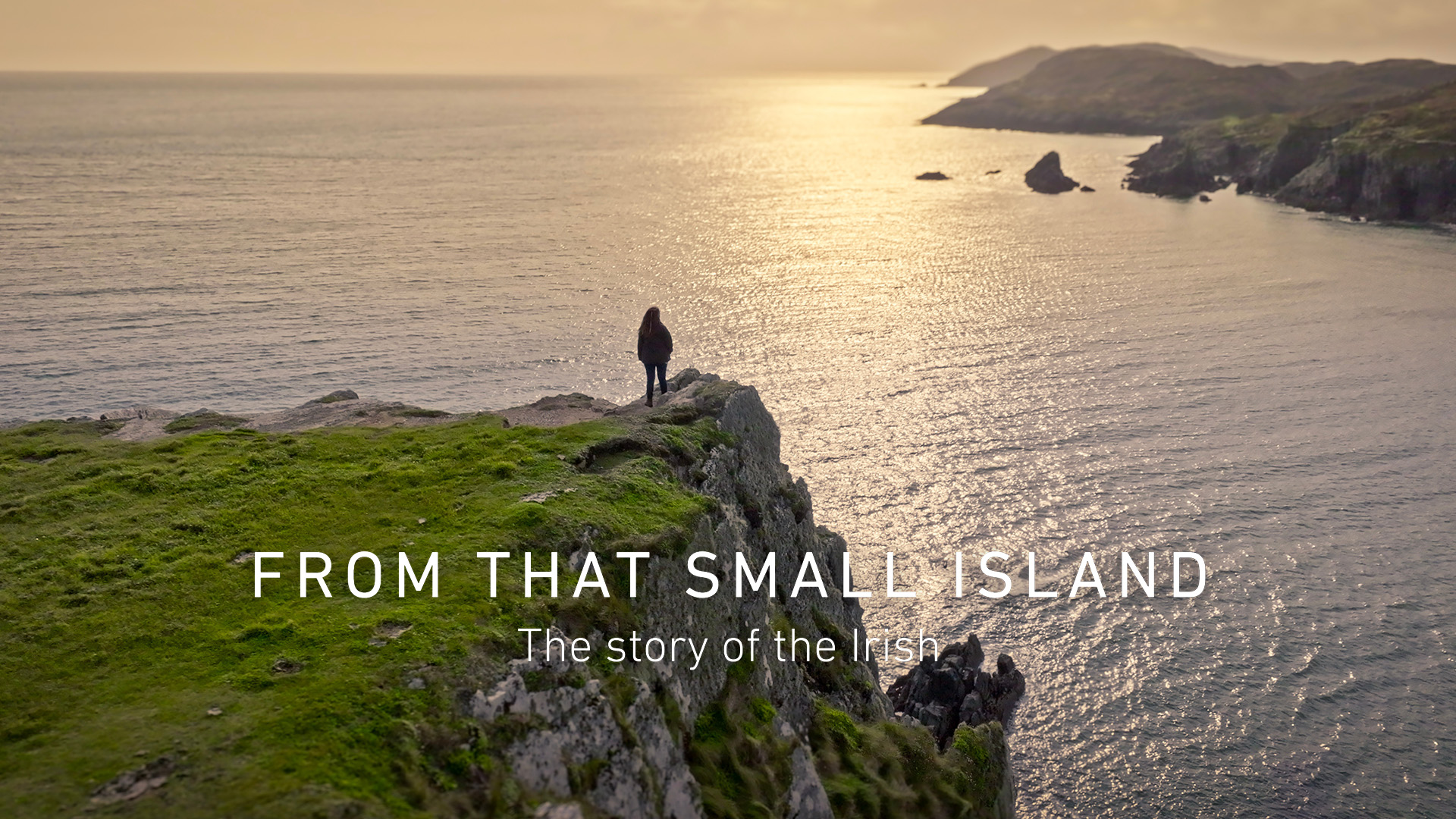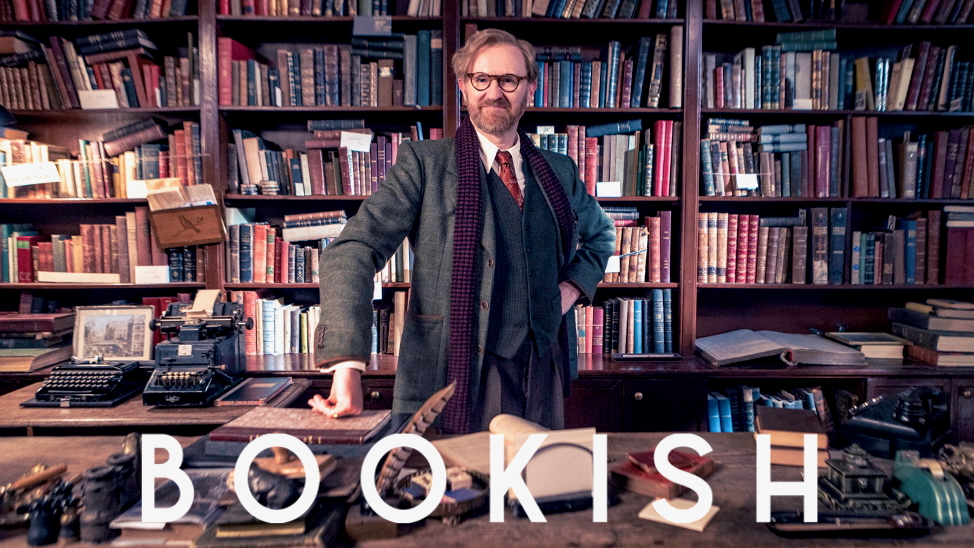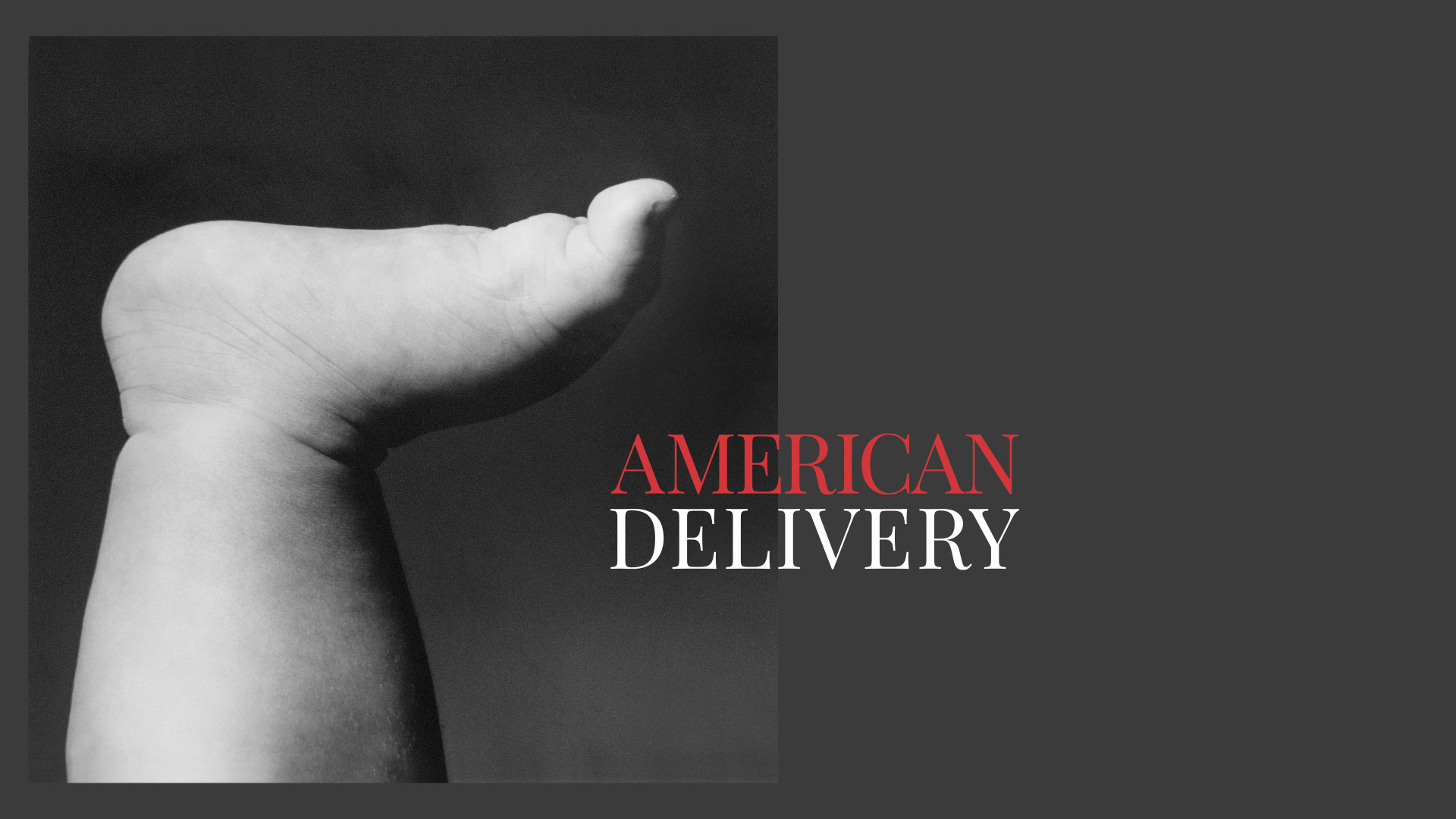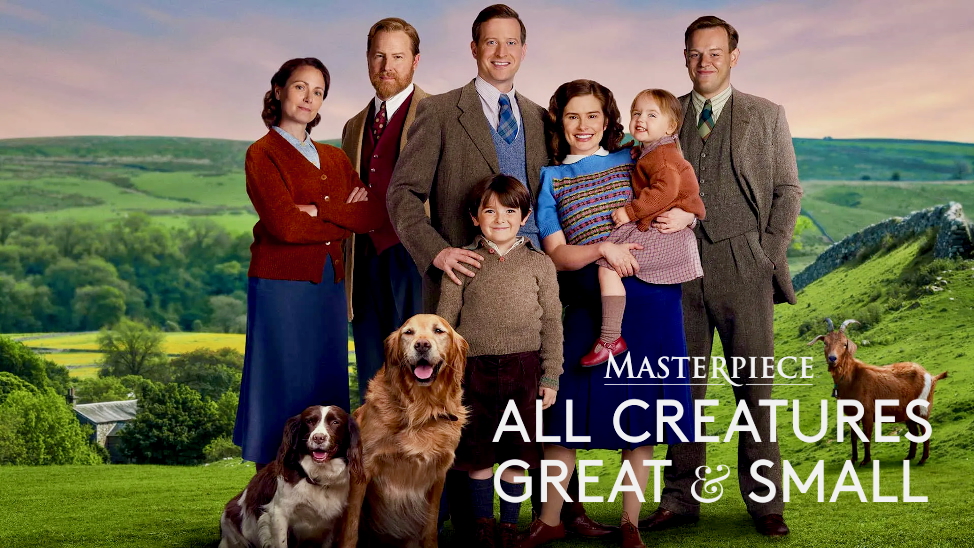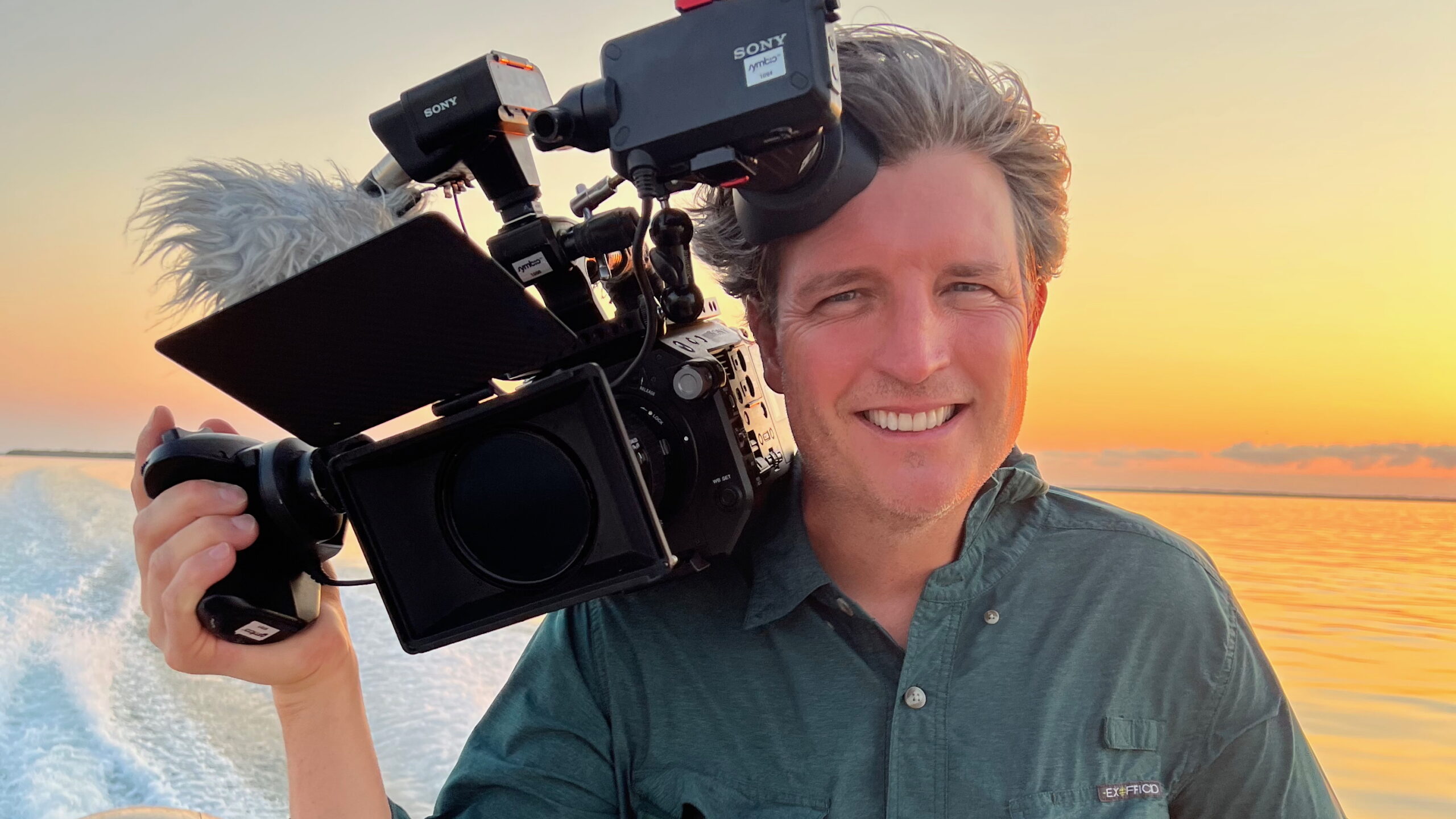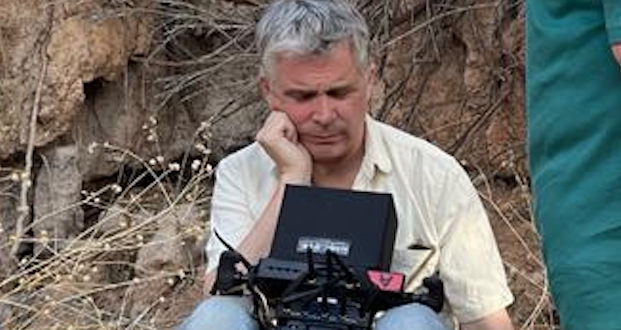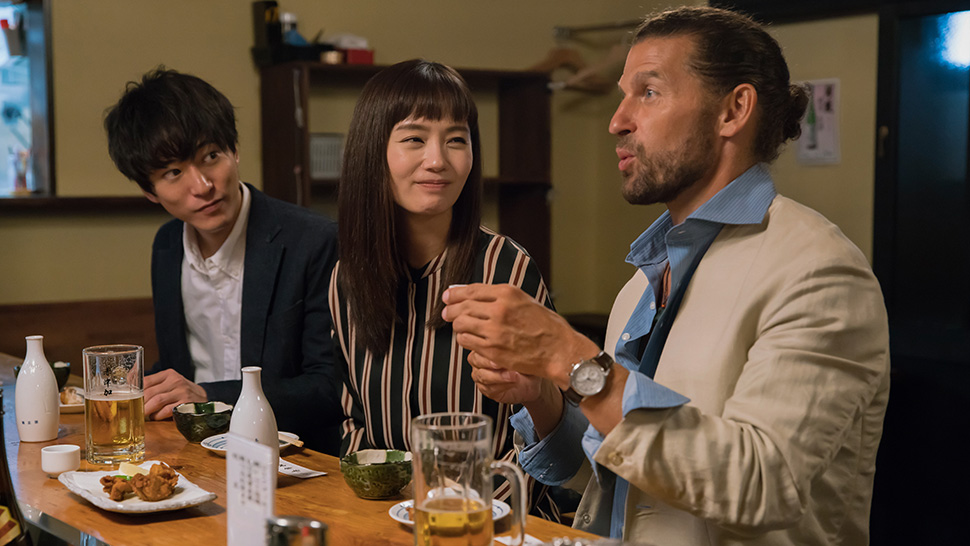KLCS recently aired “How to Cook Well at Christmas with Rory O’Connell” in the Saturday afternoon cooking block; “How to Cook Well with Rory O’Connell” is featured on Create TV (58.3), where viewers learn Irish-inspired dishes made with fresh seasonal ingredients in the same way Rory teaches cooking students at his Ballymaloe Cookery School. Opened in 1983, with the Slow Food philosophy, the school features a 100-acre organic farm. KLCS spoke to Rory about how he started cooking, what his typical day is like now, working at Chez Panisse for a month with Alice Waters, and meeting Julia Child.
Rory, how did “How to Cook Well with Rory O’Connell” come about?
I’ve been a chef for many years and I worked in restaurants for a long time and I set up the Ballymaloe Cookery School in Ireland in Cork with my sister Darina Allen, so I’ve been lecturing and teaching and involved there for many years. And then gradually, people got to know my work and saw me teaching and presenting and one day a producer came to the school and saw me working and asked me would I like to make a TV program.
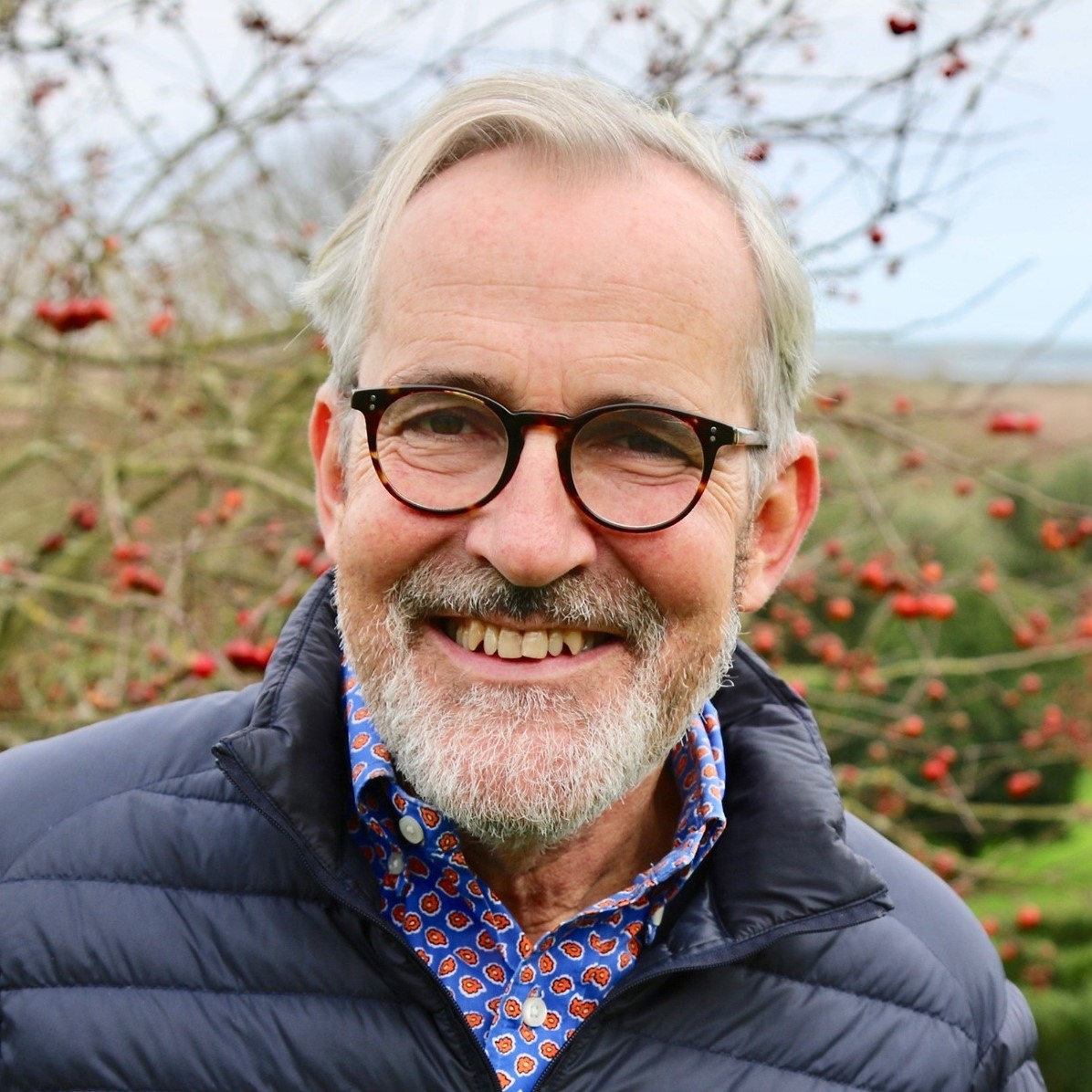
When I first saw it, I loved watching it and still keep them on Tivo because of how relaxing it is to watch.
That’s nice to hear.
Do you get feedback that your show is a guilty pleasure in a noisy world?
Yeah, pretty much. I find it curious because I love what I do and I love standing up there and doing it. And in a way, making the TV program, it’s not much different from when I’m standing in front of an audience and teaching. It’s the same thing about sharing information, sharing the pleasure and the joy of cooking. But people definitely say they find it very relaxing and I think one of the things is that there’s been a tendency with some TV cooking shows for it all to be a bit frantic, a bit manic, a bit loud and that’s just not what or who I am.
Do you hear from fans whether they’re cooking more and making your recipes more?
I think so, certainly as people all over the world are in lockdown or partial lockdown, and with restaurants closed and cafes, people have to cook for themselves. That’s definitely happening. If that will have any long lasting effects, it’s too early to tell. But definitely people are cooking more at home.
What was your path to being a chef and what made you originally want to cook on TV?
I didn’t have a particular desire to cook on TV, that just happened organically. In terms of learning how to cook I fell into it by accident, really. After high school, I went to university to study law and after a year I realized that wasn’t my thing. And then I messed around for a couple years and I ended up working in this hotel called Ballymaloe House for a summer job on reception. And at the end of the summer, I still didn’t know what I wanted to do because it was assumed I would do something academic like all of my family had. So I asked the lady who owned Ballymaloe House, if I could go to the kitchen for a couple of months just to learn a couple of things. I wanted to learn how to cook for my own gratification. I didn’t see it as a career move. But literally within a month, I knew this was for me. I loved it. And I was able to do it and I really enjoyed it.
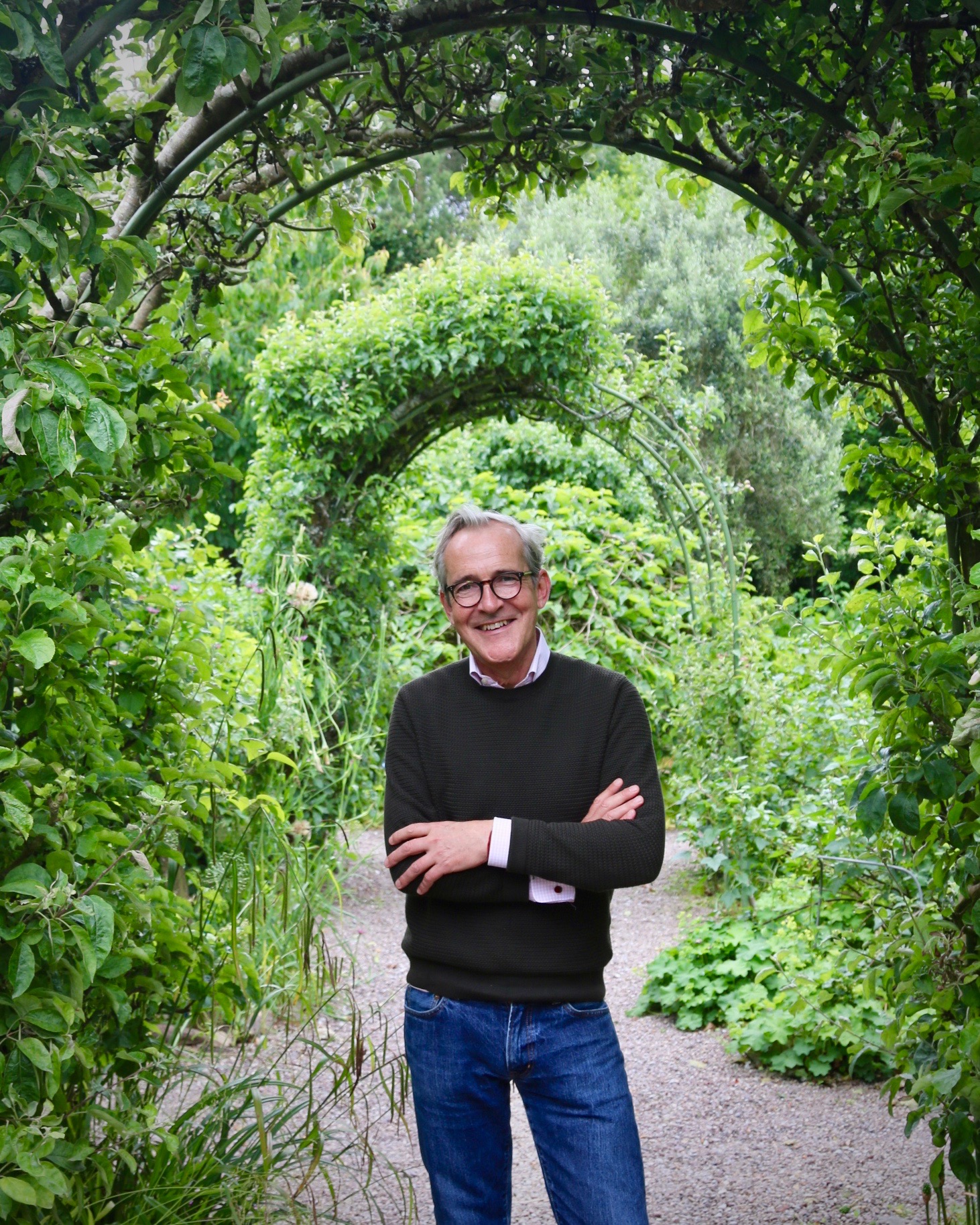
That’s your cooking school?
The whole Ballymaloe thing started off as a small country house-hotel which still exists. The Ballymaloe Cookery School is an offshoot of that. But it started 37 years ago. The inspiration for all we do came from Ballymaloe House, from a lady called Myrtle Allen, who’s regarded as being the mother of Irish Cooking.
Do you have a favorite dish that you make?
Not really. There’s so many things I love, it really depends on what’s in season. I suppose if I had to choose, I love cooking fish when I can get super fresh fish, and increasingly, I love cooking vegetables, actually.
With so many people on restrictive diets, like people who’ve cut out sugar and flour, would you ever do a book or series like that?
I don’t think so, because I’m fortunate enough I can eat everything. And at the cooking school, we teach them everything. It’s meat, fish, vegetables, we do fermented foods, we do vegan foods. We do gluten free foods. We do a wide range of dishes. My focus is very much on the quality of ingredients. I think if you start to be specific in terms of a cooking show like that, you really, really need to know the science, because if people are having a diet without something, I think you really know what to tell them to have to make up for the lack of protein in meat or dairy. How they can make up for something that might have been removed from their diet, and that’s the scientific end of the subject, which isn’t my area of expertise. If I’m making a dish and somebody says, “I love that, but I can’t have dairy,” I would try to work out an alternative for them; sometimes it’s possible and sometimes it isn’t. And if isn’t possible, I would be honest to them about the integrity of the dish and I don’t want them to cook something that is comprised and wouldn’t be delicious.
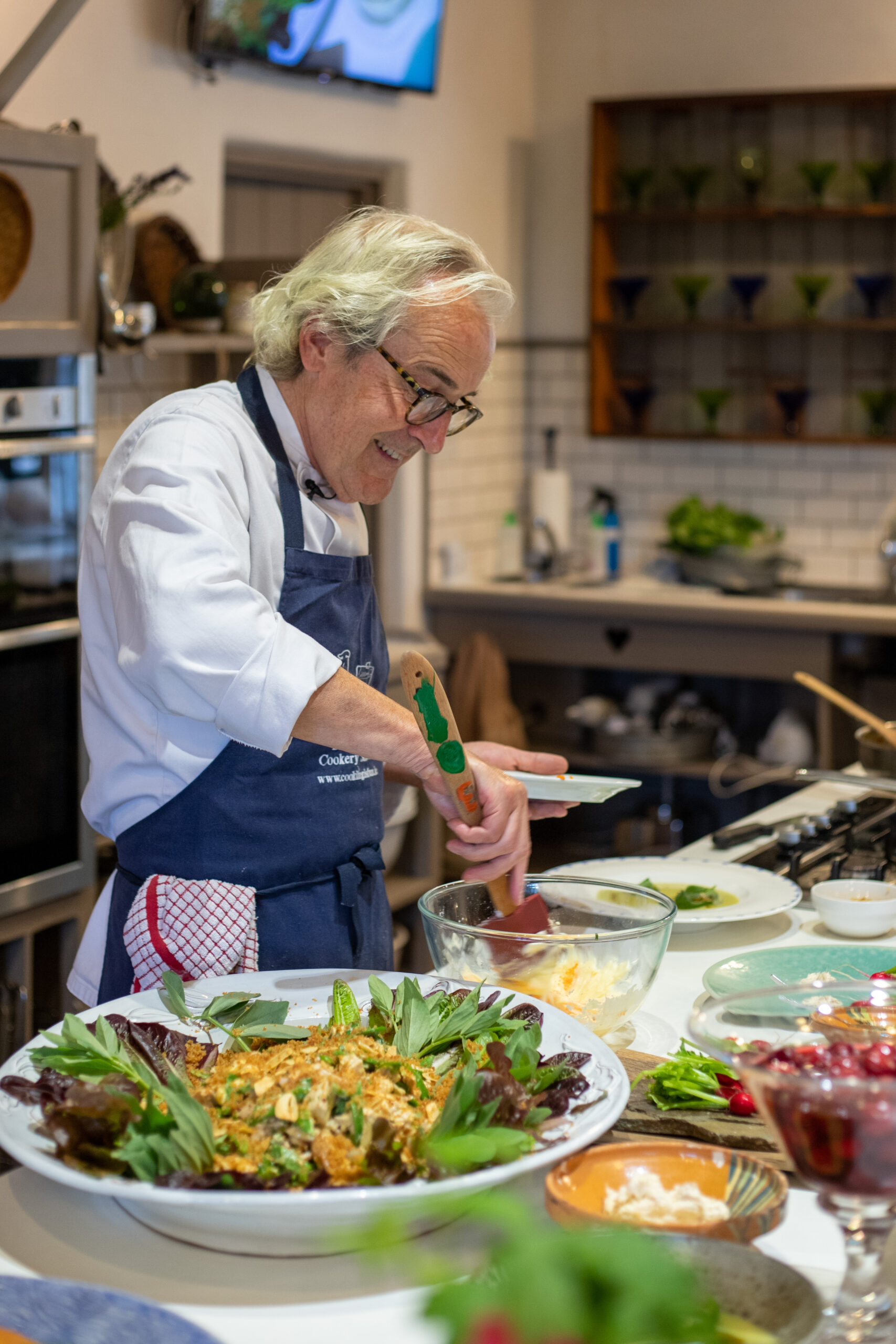
Don’t you think whenever you add cream to a dish, it’s almost a guarantee it’s going to taste good, so it’s almost an easy way out? Of course the dish is going to be tasty because the cream is going to make it rich?
Sure, I wouldn’t call it an easy way out, I would call it an obvious way out. As far as we’re concerned, it’s all about balance. So we advise a broad range of ingredients: lots of fruits and vegetables, very, very good quality bread. Ideally with very, very, good grains. Not too much meat and poultry, but when you’re eating meat and poultry, the best quality you can get; ideally organic. And the problem is dairy products, like good quality butter, good quality cream, we were told they were bad for us and they’re not bad for us. We were told eggs were bad for us; they’re not bad for us, on the contrary. But it’s all about balance. And it’s all about remembering – your grandmother wouldn’t have eaten four eggs in a day, she couldn’t have done because they wouldn’t have had them. With cream, maybe once a week in a dish that’s kind of the way we approach it. But I don’t want to deny myself, or the people I teach, if they so choose, some of the glories of the food production of our planet. I find the whole – where food comes from – even if it can all be explained scientifically, I find it a wonderful, magical mystery, a gift from nature, from the planet, from a God.
What’s the most frequent question you get and what is your response?
(laughs) What’s my favorite dish or what do I love to cook and my response is what I’ve given earlier. I think that’s probably the thing I get asked most regularly. And then some people say, “What’s your favorite dish?” and I fob off the question by saying I eat what’s in season and that’s what I love. But then if I was asked, “What’s your desert island dish?” That could be a different matter. Honestly, we have brilliant eggs, we have our own hens and sometimes a boiled egg, with some of our own 48 hour fermented sour dough bread, that could be the pinnacle. Another day, I might say, “Well actually I’d love to have asparagus on hollandaise sauce when that’s in season.” But I wouldn’t be eating that now; it would be no good to me because it would taste awful.
You can tell you really enjoy your job showing people how to cook. What keeps you going everyday?
I think that’s what keeps me going, because I enjoy it and it’s amazing because I’m mostly teaching in front of an audience and the energy I give out I get back, because you can feel the energy in the room from your class, if I’m doing my job properly if I’m explaining things. And you occasionally see somebody’s eyes widening because you have revealed a mystery, you’ve taken the cloak of difficulty off a dish and they suddenly realize, “God I can do that.” And that’s such a gift to me, so that’s what keeps me going. And also it goes back to the ingredients, really. I consider a tomato, a radish, a banana, a mackerel, a piece of beef; I consider it a gift. And even though they can all be explained scientifically, I still find it slightly mysterious and consider it to be that mysterious part of life that we don’t know about, but we know we’ve been gifted with and that we’re trying not to screw up.
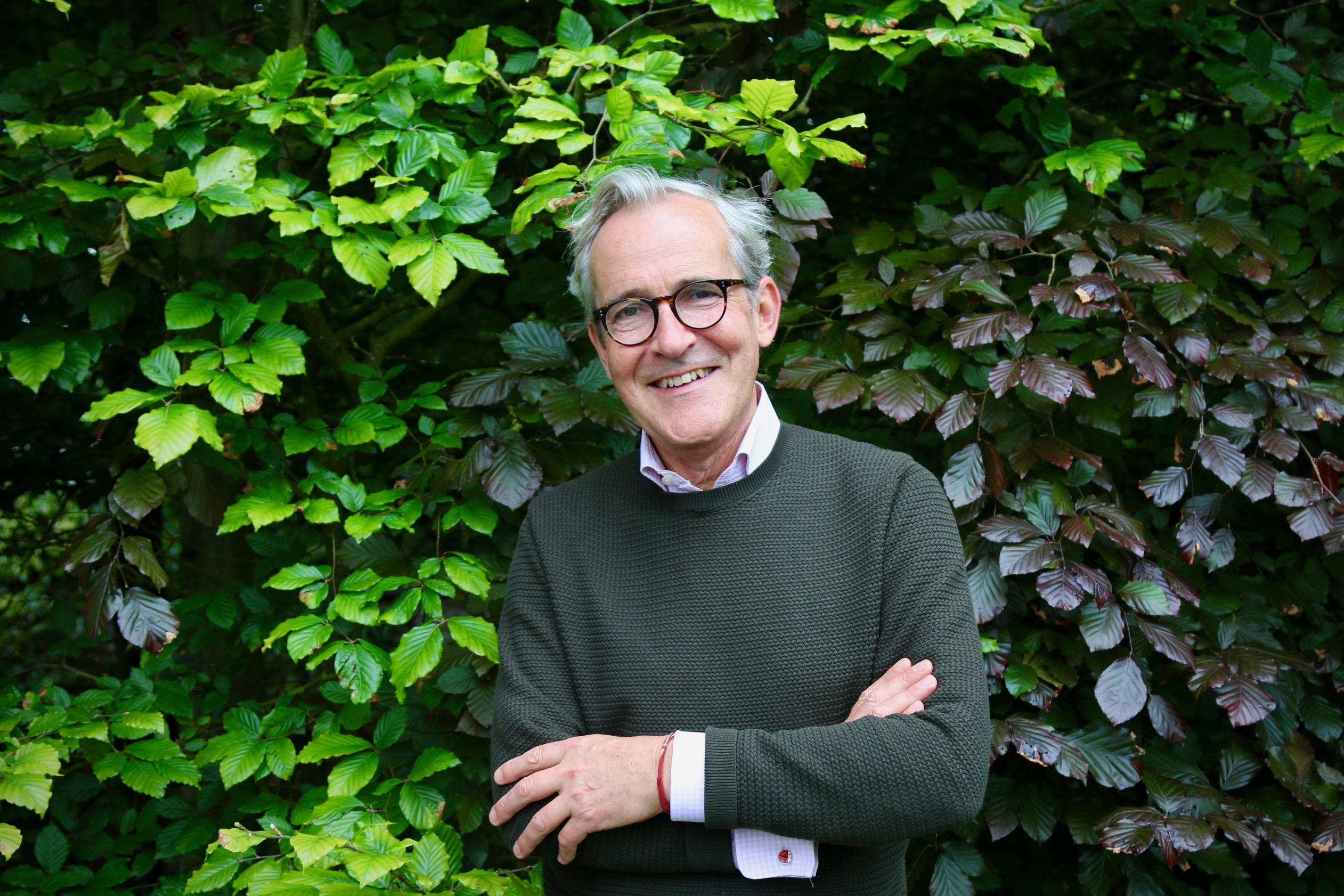
Speaking of organic ingredients, you worked at Chez Panisse with Alice Waters in Berkeley. What was that like?
It was really wonderful. I’ve known Alice for a really long time and she’s been to stay with us many times, I’ve had her for dinner in my house, I cooked a birthday dinner for her here one year. Chez Panisse is wonderful, it’s a great inspiration. In a way it’s very similar to what we do over here, except it’s on the West Coast of America, we’re on the East coast of Ireland. We cook with the seasons, we’ve been buying from local producers, local farmers, for the last 50 years. We’ve been growing our own food for 50 years, so there’s a great similarity between the two places and a huge amount of mutual respect.
Almost everyone has had a Julia Child story or that she influenced them; do you have a Julia story?
I met Julia. It was a wonderful organization IACP the International Association of Cooking Professionals, American-based organization. It was in Boston, 20 years ago or longer, longer. I met her and she was completely wonderful, towering above me and with that wonderful gravely voice. But of course I read “Mastering the Art of French Cooking” from cover to cover many times and there are dishes I cook today that was Julia Child dishes, there’s no doubt about it and I don’t see any reason to change them because they’re masterpieces.
What dish?
Her classic Boeuf Bourguignon for example, it’s just a perfect thing.
Do ever just pinch yourself you get to do this for a living and follow in the footsteps of educating people about cooking on TV and food?
I think it’s amazing. I feel so incredibly fortunate, that the job that I do satisfies me and sustains me on so many different levels – physically, financially, emotionally and spiritually. Yes, I do, I think I’ve been incredibly fortunate.
What made you want to start a cooking school with your sister and do you get a lot of fans that fly to your school to take classes?
We get people from all over the world, which is wonderful, literally all over the world. Originally the cooking school, which was my sister’s idea first, she and her husband had a farm and they were market gardeners and the money just fell out of that business. And my sister’s a wonderful cook as well and she’d been doing cooking classes in a very small way at the hotel at Ballymaloe during the winter when things got quiet. And the response was really good and she began to wonder, “Maybe we can start a little school.” So she went off to Marcella Hazan’s school in Italy and various different schools in England and one in France as well, to see what they were doing and she came back completely confident that we could do something as good, if not better.
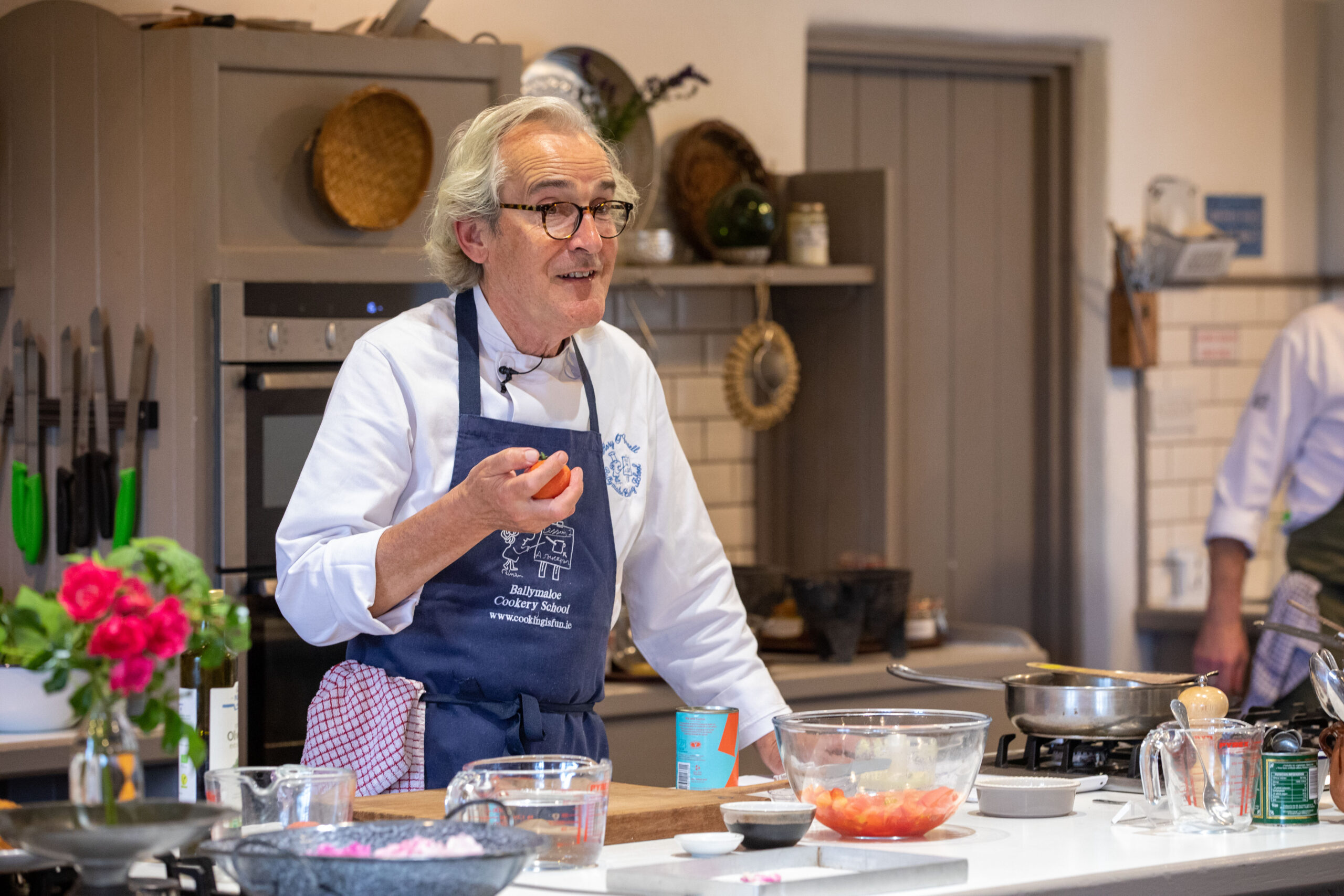
What’s your average day like now?
I’m not at the school full time, but at the moment I teach three afternoons a week at the school, then, for example next week I’ll be doing some live TV in Cork city for our national broadcaster and I just released a new book called the “Joy of Food” and I might be doing some PR work for that. I might be testing recipes, or if I come across a grouping of ingredients or an idea that is of interest me, I’ll maybe work on new recipes. It’s a good sort of mixture of things like that.
The school is virtual classes now?
No, we have a lot of virtual classes and it’s called BCS online, but at the moment we have a group for 12-week students and they live in a bubble within the school. They’re not allowed to travel any further than five kilometers from the school and they live almost in a total bubble. Their day starts at 8 a.m. cooking in the morning, sit down for lunch and cooking demonstrations in the afternoon and so on, so I’m very much involved in that. All of our students have to quarantine for two weeks before they came to us.
Is there anything you want to add?
It’s a great joy for me when I hear that people enjoy the program and I hope people cook some of the dishes that I demonstrate because the recipes are all online. For me personally, I feel incredibly fortunate that I cook and that cooking has become my career and sustains me in so many different ways and that’s not quite a unique position, but it’s not everybody’s position, but it’s amazing. I think what’s not often talked about in terms of cooking, because a lot of people see it as a chore, hard work, but I think there’s elements to cooking when you get a little bit confident, which can be almost like meditation and it can be a really deeply soothing experience if you don’t approach it as if it’s some sort of Olympian pursuit. I hope people really enjoy it. And also I would like to say, please God, or Inshallah, whatever one believes in, that with the encouraging news that’s coming from Pfizer and companies with the vaccine, I hope that within a year we’ll all be able to travel again to some degree or another and I hope that some of the people watching the programs will come and visit us in Ballymaloe in Ireland.

